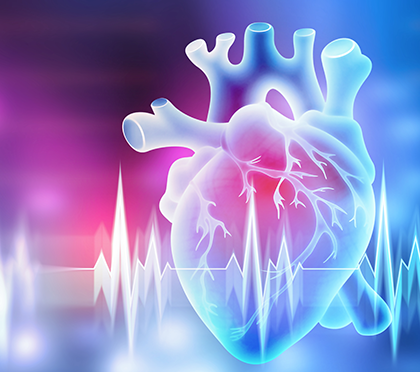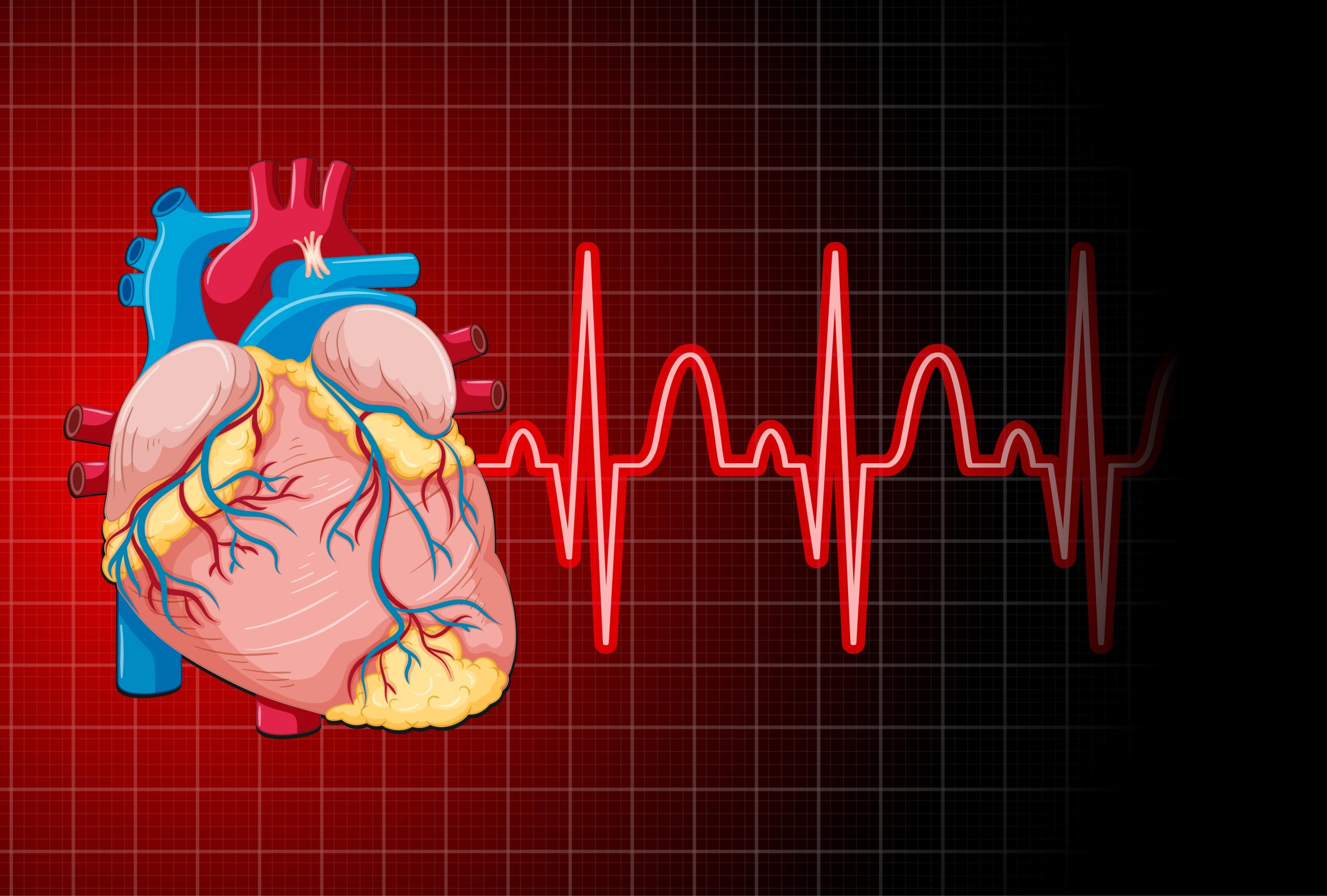Follow Cardiology Jupiter’s actionable plan to prevent heart disease
Follow Cardiology Jupiter’s actionable plan to prevent heart disease
Blog Article
Comprehending the Importance of Cardiology in Modern Health Care Providers
Cardiology plays an essential duty in contemporary health care, especially as cardiovascular disease remains to be the leading reason of death worldwide. Breakthroughs in diagnostics and therapy have changed person treatment, enabling earlier interventions and boosted results. Furthermore, the change towards preventive cardiology equips individuals to manage their health proactively. As innovation continues to advance, the integration of innovative remedies might additionally redefine cardiology's impact on public wellness, motivating a closer exam of emerging trends and their effects.
The Occurrence of Cardiovascular Disease and Its Effect on Public Health And Wellness
Although heart disease remains the leading reason of death globally, its impact extends far past individual people to influence public health systems and economic climates. The high prevalence of heart problem places a considerable stress on medical care sources, necessitating enhanced financing for avoidance, therapy, and recovery programs. Public health efforts have to attend to risk elements such as excessive weight, smoking, and less active lifestyles, which add considerably to the climbing occurrence of heart conditions.Moreover, the financial concern connected with heart condition is enormous, incorporating not just direct clinical costs but additionally indirect expenses connected to lost productivity and early mortality. Neighborhoods deal with challenges in handling these prices, usually causing variations in medical care gain access to and end results. As the population ages and lifestyle-related risks continue to intensify, the seriousness for effective cardiology treatments ends up being extremely important. Attending to heart condition is not only a matter of individual health and wellness but likewise a critical public wellness priority.
Advancements in Cardiac Diagnostics and Imaging Techniques
Current improvements in heart diagnostics and imaging techniques have actually reinvented the area of cardiology, boosting the capacity to check and discover heart problem. Strategies such as cardiac MRI, CT angiography, and echocardiography have become significantly advanced, supplying comprehensive pictures of heart structures and functions. These techniques permit the early recognition of problems like coronary artery disease, cardiac arrest, and valvular disorders.Moreover, developments in non-invasive diagnostics, such as wearable technology and remote monitoring gadgets, have encouraged patients and doctor. These tools promote real-time tracking of heart rhythms and various other necessary indications, bring about prompt treatments. In addition, man-made knowledge is being incorporated right into imaging analysis, improving accuracy and efficiency in medical diagnosis.
Advancements in Therapy Alternatives for Heart Conditions
Current improvements in cardiology have actually caused substantial innovations in therapy alternatives for heart disease. These include sophisticated surgical techniques that boost step-by-step end results and arising medicines that provide new opportunities for therapy. As the area progresses, these technologies play a crucial role in improving patient care and results.
Advanced Surgical Techniques
Technologies in medical methods have actually transformed the landscape of cardiology, using new expect clients with heart disease. Minimally intrusive procedures, such as catheter-based treatments, have significantly lowered recovery times and health center stays. Methods like robotic-assisted surgery boost accuracy, enabling cosmetic surgeons to navigate intricate physiological structures with better accuracy. Developments in imaging technology assist in real-time visualization throughout procedures, improving results. Transcatheter aortic valve substitute (TAVR) exemplifies an innovation in dealing with aortic constriction, enabling valve replacement without open-heart surgical treatment. Furthermore, hybrid approaches that combine catheter-based and surgical approaches offer tailored services for various cardiac issues. These sophisticated surgical methods not only improve patient safety and security yet likewise increase therapy alternatives, underscoring the essential duty of development in contemporary cardiology techniques.
Arising Medications and Therapies
As the landscape of cardiology remains to advance, arising therapies and drugs play a critical role in improving treatment alternatives for heart conditions. Advancements such as unique anticoagulants and advanced lipid-lowering representatives have changed the administration of heart diseases, substantially lowering person morbidity and mortality. In addition, the advancement of genetics treatments and regenerative medication supplies promising methods for dealing with conditions formerly considered irreversible. Professional trials are continually exposing the efficiency of these therapies, pushing the boundaries of conventional treatments. Furthermore, the integration of electronic wellness technologies facilitates customized medicine, enabling for tailored treatment plans based upon hereditary and way of life elements. Collectively, these advancements emphasize the dynamic nature of cardiology, boosting individual results and redefining requirements of treatment in modern-day health care.
The Function of Preventive Cardiology in Individual Care
Preventative cardiology plays a crucial function in patient treatment by concentrating on the recognition of risk elements that add to heart problem. Via way of life alteration techniques and very early discovery methods, doctor can properly minimize the occurrence of cardio occasions - Cardiology care. This positive technique not only improves individual end results however likewise promotes long-term health
Risk Variable Recognition
While cardio illness remain a leading source of morbidity and mortality worldwide, reliable danger aspect recognition works as a foundation of preventative cardiology. Determining danger variables such as hypertension, hyperlipidemia, diabetes mellitus, and family history is crucial for early intervention. Healthcare specialists make use of various screening techniques to evaluate these factors, enabling for tailored preventive procedures. Furthermore, understanding an individual's way of living choices, such as cigarette smoking and physical lack of exercise, further informs danger evaluations. This extensive evaluation allows clinicians to establish personalized care strategies aimed at mitigating threats. By prioritizing threat factor identification, health care systems can improve individual end results and reduce the total problem of cardio conditions, eventually adding to enhanced public health and wellness methods and resource allocation.
Way Of Life Alteration Methods
A wide range of research studies highlights the essential role of way of living modification techniques in lowering cardiovascular condition risk. These strategies include nutritional changes, boosted physical activity, cigarette smoking cessation, and weight administration. By embracing a heart-healthy diet rich in fruits, vegetables, entire grains, and lean healthy proteins, individuals can reduce cholesterol levels and high blood pressure. Routine exercise reinforces the heart and enhances overall cardiovascular wellness. Furthermore, stopping smoking cigarettes considerably lowers the risk of cardiovascular disease and enhances healing prices for those with existing problems. Weight management further adds to cardiovascular wellness by reducing various other threat elements such as diabetic issues and high blood pressure. Applying these way of life alters not only promotes private health yet likewise acts as a keystone of preventive cardiology in person treatment.
Very Early Detection Techniques
Way of life adjustments substantially contribute to lowering heart disease risks, but they are most effective when coupled with very early detection strategies. Preventive cardiology highlights the importance of recognizing potential heart problems before they intensify right into serious problems. Strategies such as high blood pressure tracking, cholesterol screening, and progressed imaging technologies like echocardiograms play essential functions in evaluating cardio health. Biomarkers and hereditary screening also enhance the accuracy of very early detection, enabling tailored preventative techniques. Regular cardiac danger assessments equip healthcare service providers to interfere proactively, potentially avoiding cardiovascular disease and strokes (Cardiology care). By integrating these early detection methods into regular treatment, individuals can take advantage of prompt way of life interventions and targeted treatments, eventually enhancing and enhancing results lifestyle
Integrating Modern Technology Into Cardiology Practices
As developments in modern technology proceed to improve various fields, the assimilation of innovative devices and systems into cardiology practices has actually come to be crucial for enhancing individual treatment and outcomes. Telemedicine platforms allow cardiologists to keep an eye on people remotely, boosting accessibility to care while lowering the problem on medical care facilities. Wearable devices, such as smartwatches, allow constant heart price surveillance, informing both medical professionals and people to potential issues in real-time. Furthermore, fabricated intelligence (AI) is being utilized to evaluate large quantities of heart data, helping in early diagnosis and personalized treatment plans. Advanced imaging methods, including 3D echocardiography, boost visualization of heart structures, leading to extra specific interventions. Digital health records (EHRs) simplify client info monitoring, making certain that cardiologists have instant accessibility to important data. Together, these technical innovations are transforming cardiology, advertising proactive monitoring and boosted health and wellness end results for clients with cardio conditions.
The Relevance of Individual Education And Learning and Involvement
Client education and interaction play a crucial duty in the monitoring of cardio wellness. By equipping patients with knowledge concerning their conditions, therapy options, and way of life adjustments, doctor encourage individuals to take an active duty in their care. This positive approach can lead to improved adherence to prescribed medications, nutritional modifications, and exercise regimens, inevitably decreasing the danger of complications.Engagement also fosters a solid patient-provider connection, motivating open communication and trust. When individuals really feel notified and included, they are more probable to voice problems and ask inquiries, which can cause better scientific results. Additionally, educational resources, such as workshops or digital platforms, can improve understanding and promote self-management methods. Generally, focusing on patient education and learning and interaction is important for boosting cardiovascular wellness, enhancing top quality of life, and reducing health care prices related to heart diseases.
Future Fads in Cardiology and Their Potential Effect

Often Asked Questions
What Lifestyle Adjustments Can Minimize Cardiovascular Disease Risk?
The present question addresses lifestyle modifications that can over at this website substantially minimize cardiovascular disease threat. Cardiologist near me. Adopting a balanced diet, engaging in regular physical activity, maintaining a healthy weight, managing tension, and avoiding cigarette can especially boost cardio health and wellness
How Can I Identify Very Early Signs of Heart Issues?
Identifying very early indicators of heart problems involves surveillance signs and symptoms such as chest discomfort, lack of breath, tiredness, and irregular heartbeat. Prompt awareness of these signs can trigger necessary clinical analysis and intervention for better end results.
What Are the Differences Between Cardiologists and Cardiac Surgeons?
The differences between cardiologists and cardiac surgeons exist in their duties; cardiologists largely handle and diagnose heart disease via non-invasive techniques, while heart doctors carry out operations to deal with structural heart problems. Each plays an essential, unique function.

How Frequently Should I Get My Heart Wellness Checked?
The regularity of heart health and wellness checks differs based upon private danger factors. Normally, grownups ought to undertake evaluations every one to two years, while those with status quo may need even more frequent evaluations as suggested by health care specialists.
What Function Does Genes Play in Heart Disease Risk?
Genetics greatly influences cardiovascular disease risk, with familial patterns indicating acquired problems. Specific Source genetics can predispose people to high blood pressure, cholesterol issues, and various other cardiovascular problems, highlighting the importance of genetic screening in examining heart health. Heart condition continues to be the leading reason of fatality worldwide, its effect extends far beyond private people to affect public health systems and economic climates. Public health and wellness efforts should attend to risk aspects such as excessive weight, smoking, and sedentary way of lives, which add substantially to the increasing incidence of heart conditions.Moreover, the economic worry connected with heart condition is enormous, incorporating not just direct clinical expenses yet additionally indirect expenses associated to lost performance and premature death. Preventative cardiology plays an important duty in person care by focusing on the identification of risk variables that contribute to heart condition. Fabricated intelligence (AI) and equipment knowing are boosting diagnostics and person tracking, allowing early discovery of heart diseases. The distinctions in between cardiologists and heart surgeons exist in their roles; cardiologists largely diagnose and handle heart conditions via non-invasive approaches, while cardiac surgeons perform medical procedures to deal with architectural heart concerns.
Report this page